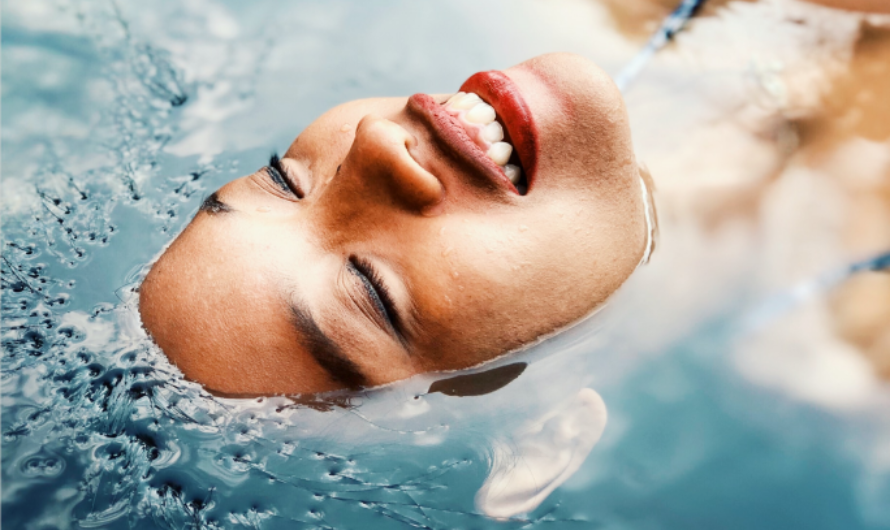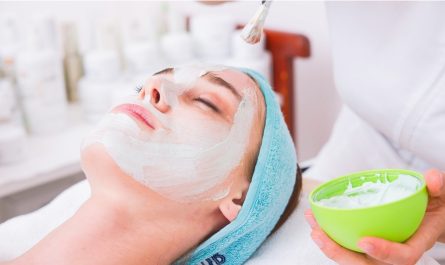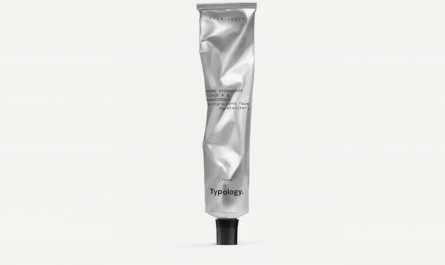Skin hydration is the state of having enough water and moisture in the outer layer of the skin, called the stratum corneum. It is essential for maintaining a healthy and beautiful skin, as it affects its appearance, function, and resilience. However, many people struggle with keeping their skin hydrated, especially in dry or cold weather, or as they age. In this article, we will explain what are the benefits of skin hydration, what are the causes of skin dehydration, and how to hydrate your skin from the inside out with the best tips and tricks.
The benefits of skin hydration
Skin hydration has many benefits for both the appearance and health of the skin. Some of these benefits are:
- It makes the skin look smoother, plumper, brighter, and more even-toned.
- It prevents or reduces fine lines, wrinkles, sagging, dullness, or flakiness on the skin.
- It improves the elasticity and firmness of the skin, making it more resilient to external stressors.
- It enhances the barrier function of the skin, protecting it from infection, irritation, or inflammation.
- It regulates the oil production of the skin, preventing it from becoming too oily or too dry.
- It supports the natural exfoliation process of the skin, removing dead skin cells and improving texture.
- It allows better absorption and penetration of skincare products and ingredients into the skin.
The causes of skin dehydration
Skin dehydration is the state of having insufficient water and moisture in the outer layer of the skin. It can be caused by various factors, both internal and external, that affect the water balance of the skin. Some of these factors are:
- Genetics: Some people have naturally dry or sensitive skin that is more prone to dehydration.
- Age: As we get older, our skin produces less natural oils and loses its ability to retain water, resulting in dehydration.
- Climate: Dry or cold weather can strip the skin of its moisture and damage its barrier function, leading to dehydration.
- Water quality: Hard or chlorinated water can dry out the skin and disrupt its pH balance, causing dehydration.
- Lifestyle: Factors such as smoking, drinking alcohol, eating a poor diet, or being stressed can dehydrate the skin and affect its health and appearance.
- Skincare products: Using products that are too harsh, too drying, or not suitable for your skin type or condition can dehydrate the skin and irritate it.
How to identify the signs and symptoms of skin dehydration
Skin dehydration can manifest in different ways, depending on your skin type and condition. However, some of the common signs and symptoms of skin dehydration are:
- Your skin feels tight, rough, or itchy.
- Your skin looks dull, flaky, or cracked.
- Your skin has fine lines, wrinkles, or sagging.
- Your skin has enlarged pores or blackheads.
- Your skin has redness, irritation, or inflammation.
If you notice any of these signs or symptoms on your skin, you may need to hydrate your skin from the inside out.
The best ways to hydrate your skin from the inside out
Hydrating your skin from the inside out means providing your skin with enough water and nutrients that support its hydration and health. This can be done by drinking enough water and fluids, eating a balanced diet rich in hydrating foods, and taking supplements that support skin hydration. Here are some tips on how to do it:
How to drink enough water and fluids for your skin
Water is the most important element for hydrating your skin from the inside out. Water helps flush out toxins from your body, regulate your body temperature, transport nutrients to your cells, and maintain your blood volume and pressure. Water also helps keep your skin moist and plump, preventing it from becoming dry or dehydrated.
The amount of water you need to drink depends on various factors, such as your age, weight, activity level, climate, or health condition. However, a general rule of thumb is to drink at least eight glasses of water a day, or more if you are active or in a hot or dry environment. You can also drink other fluids that hydrate your body and skin, such as herbal teas,fruit juices, smoothies, or soups. However, you should avoid or limit fluids that dehydrate your body and skin, such as coffee, alcohol, soda, or energy drinks.
How to eat a balanced diet rich in hydrating foods for your skin
Eating a balanced diet that provides your body and skin with essential nutrients is another way to hydrate your skin from the inside out. Some of the nutrients that support skin hydration are:
- Vitamins: Vitamins are organic compounds that have various functions in the body and skin. Some of the vitamins that help hydrate the skin are vitamin C, vitamin E, vitamin A, and vitamin B complex. Vitamin C is an antioxidant that helps protect the skin from free radical damage and stimulates collagen production. Vitamin E is another antioxidant that helps moisturize and heal the skin. Vitamin A helps regulate cell turnover and prevent dryness and flaking. Vitamin B complex helps maintain the skin’s barrier function and prevent water loss.
- Minerals: Minerals are inorganic substances that have various roles in the body and skin. Some of the minerals that help hydrate the skin are zinc, magnesium, calcium, and potassium. Zinc is an anti-inflammatory that helps heal wounds and prevent infections on the skin. Magnesium is a relaxant that helps reduce stress and improve blood circulation. Calcium is a structural component that helps strengthen the bones and teeth. Potassium is an electrolyte that helps balance the fluid levels in the body and skin.
- Fatty acids: Fatty acids are long chains of carbon and hydrogen atoms that have various effects on the body and skin. Some of the fatty acids that help hydrate the skin are omega-3 and omega-6 fatty acids. Omega-3 fatty acids are anti-inflammatory and anti-aging that help reduce inflammation and improve skin elasticity. Omega-6 fatty acids are moisturizing and nourishing that help replenish and protect the skin’s barrier function.
Some of the foods that are rich in these nutrients and hydrate your body and skin are:
- Fruits: Fruits are high in water content and vitamins, especially vitamin C. They also contain antioxidants and fiber that help detoxify and cleanse your body and skin. Some of the best fruits for hydrating your skin are watermelon, cucumber, berries, citrus fruits, kiwi, or pineapple.
- Vegetables: Vegetables are also high in water content and vitamins, especially vitamin A and vitamin B complex. They also contain minerals and phytochemicals that help protect and repair your body and skin. Some of the best vegetables for hydrating your skin are lettuce, spinach, kale, celery, carrots, tomatoes, or broccoli.
- Nuts and seeds: Nuts and seeds are high in fatty acids, especially omega-3 and omega-6 fatty acids. They also contain protein and minerals that help nourish and strengthen your body and skin. Some of the best nuts and seeds for hydrating your skin are almonds, walnuts, flaxseeds, chia seeds, or sunflower seeds.
- Fish and seafood: Fish and seafood are high in protein and fatty acids, especially omega-3 fatty acids. They also contain zinc and selenium that help heal and protect your body and skin. Some of the best fish and seafood for hydrating your skin are salmon, tuna, sardines, mackerel, or shrimp.
How to take supplements that support skin hydration
Taking supplements that provide your body and skin with extra nutrients that support skin hydration can also be a good option, especially if you have a deficiency or a special need. However, you should always consult your doctor before taking any supplements, as they may have side effects or interactions with other medications or conditions. Some of the supplements that can help hydrate your skin are:
- Hyaluronic acid: This supplement is a synthetic form of the natural substance that is found in the skin and helps retain water and moisture. It can help plump up and smooth out the skin. It can also help fill in fine lines and wrinkles and improve skin hydration. It is suitable for all skin types and can be taken orally or applied topically.
- Collagen: This supplement is a synthetic form of the natural protein that is found in the skin and helps provide structure and elasticity. It can help firm up sagging skin, smooth out wrinkles, and improve skin texture. It can also help hydrate and nourish the skin. It is suitable for all skin types and can be taken orally or applied topically.
- Biotin: This supplement is a synthetic form of the natural vitamin that is found in the body and helps metabolize fats, carbohydrates, and proteins. It can help strengthen the hair, nails, and skin. It can also help prevent dryness and flaking on the skin. It is suitable for all skin types and can be taken orally.
The best ways to hydrate your skin from the outside in
Hydrating your skin from the outside in means applying products that provide your skin with moisture and nourishment that support its hydration and health. This can be done by using gentle and effective skincare products for your skin type and condition, applying moisturizers and serums that lock in moisture and nourish the skin, and using masks and mists that boost hydration and refresh the skin. Here are some tips on how to do it:
How to use gentle and effective skincare products for your skin type and condition
Using gentle and effective skincare products that suit your skin type and condition is the first step to hydrate your skin from the outside in. This means choosing products that cleanse, tone, exfoliate, and treat your skin without stripping it of its natural oils or irritating it. You should also avoid products that contain ingredients that can dehydrate or harm your skin, such as alcohol, sulfates, parabens, or artificial fragrances. Some of the products that you should use for hydrating your skin are:
- Cleanser: A cleanser is a product that removes dirt, oil, makeup, and impurities from the surface of the skin. It prepares the skin for the next steps of the skincare routine. You should use a gentle cleanser that does not dry out or irritate your skin, such as a cream, gel, or oil cleanser. You should use it twice a day, in the morning and at night.
- Toner: A toner is a product that balances the pH level of the skin and removes any residue left by the cleanser. It also hydrates and refreshes the skin. You should use a hydrating toner that does not contain alcohol or astringents, such as a rose water, green tea, or aloe vera toner. You should use it twice a day, after cleansing and before moisturizing.
- Exfoliator: An exfoliator is a product that removes dead skin cells and excess oil from the surface of the skin. It also improves the texture and tone of the skin. You should use a gentle exfoliator that does not scratch or damage your skin, such as a scrub, peel, or enzyme exfoliator. You should use it once or twice a week, depending on your skin type and condition.
- Treatment: A treatment is a product that targets specific skin concerns or goals, such as acne, aging signs, or hyperpigmentation. It also enhances the effects of other skincare products. You should use a treatment that suits your skin type and condition, such as a serum, essence, or ampoule. You should use it once or twice a day, after toning and before moisturizing.
How to apply moisturizers and serums that lock in moisture and nourish the skin
Applying moisturizers and serums that lock in moisture and nourish the skin is the second step to hydrate your skin from the outside in. This means choosing products that provide your skin with hydration and nutrients that support its hydration and health. You should also avoid products that contain ingredients that can clog your pores or cause breakouts, such as mineral oil, petrolatum, or lanolin. Some of the products that you should use for hydrating your skin are:
- Moisturizer: A moisturizer is a product that seals in moisture and prevents water loss from the skin. It also softens and soothes the skin. You should use a moisturizer that matches your skin type and condition, such as a lotion, cream, gel,or oil moisturizer. You should use it twice a day, after toning and treatment.
- Serum: A serum is a product that delivers a high concentration of active ingredients into the deeper layers of the skin. It also boosts the effects of other skincare products. You should use a serum that addresses your specific skin concerns or goals, such as a hyaluronic acid, vitamin C, or peptide serum. You should use it once or twice a day, after toning and before moisturizing.
How to use masks and mists that boost hydration and refresh the skin
Using masks and mists that boost hydration and refresh the skin is the third step to hydrate your skin from the outside in. This means choosing products that provide your skin with extra moisture and nourishment that support its hydration and health. You should also avoid products that contain ingredients that can irritate or dry out your skin, such as alcohol, menthol, or artificial fragrances. Some of the products that you should use for hydrating your skin are:
- Mask: A mask is a product that covers the whole face and delivers a high dose of ingredients into the skin. It also relaxes and pampers the skin. You should use a hydrating mask that does not contain clay or charcoal, as these can dehydrate the skin. You should use it once or twice a week, after cleansing and exfoliating.
- Mist: A mist is a product that sprays a fine mist of water or essence onto the face. It also hydrates and refreshes the skin. You should use a hydrating mist that does not contain alcohol or astringents, as these can dehydrate the skin. You should use it whenever you feel your skin needs a boost of hydration, such as in the morning, during the day, or at night.
Conclusion
In conclusion, skin hydration is essential for maintaining a healthy and beautiful skin, as it affects its appearance, function, and resilience. However, many people struggle with keeping their skin hydrated, especially in dry or cold weather, or as they age. In this article, we have explained what are the benefits of skin hydration, what are the causes of skin dehydration, and how to hydrate your skin from the inside out with the best tips and tricks.
We hope this article has helped you learn more about how to hydrate your skin from the inside out. If you have any questions or feedback, please feel free to leave a comment below. Thank you for reading!
FAQs
Q: How do I know if my skin is hydrated or dehydrated?
A: You can determine if your skin is hydrated or dehydrated by observing your skin’s characteristics, such as texture, tone, or feel. You can also do a simple test by pinching a small area of your cheek or forehead with your fingers. If your skin snaps back quickly and smoothly, it is hydrated. If your skin stays creased or wrinkled for a few seconds, it is dehydrated.
Q: How much water should I drink to hydrate my skin?
A: The amount of water you should drink to hydrate your skin depends on various factors,such as your age, weight, activity level, climate, or health condition. However, a general rule of thumb is to drink at least eight glasses of water a day, or more if you are active or in a hot or dry environment. You can also drink other fluids that hydrate your body and skin, such as herbal teas, fruit juices, smoothies, or soups. However, you should avoid or limit fluids that dehydrate your body and skin, such as coffee, alcohol, soda, or energy drinks.
Q: What are the best foods to eat to hydrate my skin?
A: The best foods to eat to hydrate your skin are foods that are high in water content and nutrients that support skin hydration. Some of these foods are fruits, vegetables, nuts and seeds, fish and seafood. Fruits and vegetables are high in water content and vitamins, especially vitamin C. They also contain antioxidants and fiber that help detoxify and cleanse your body and skin. Nuts and seeds are high in fatty acids, especially omega-3 and omega-6 fatty acids. They also contain protein and minerals that help nourish and strengthen your body and skin. Fish and seafood are high in protein and fatty acids, especially omega-3 fatty acids. They also contain zinc and selenium that help heal and protect your body and skin.
Q: What are the best skincare products to use to hydrate my skin?
A: The best skincare products to use to hydrate your skin are products that provide your skin with moisture and nourishment that support its hydration and health. Some of these products are cleanser, toner, exfoliator, treatment, moisturizer, serum, mask, and mist. Cleanser is a product that removes dirt, oil, makeup, and impurities from the surface of the skin. It prepares the skin for the next steps of the skincare routine. Toner is a product that balances the pH level of the skin and removes any residue left by the cleanser. It also hydrates and refreshes the skin. Exfoliator is a product that removes dead skin cells and excess oil from the surface of the skin. It also improves the texture and tone of the skin. Treatment is a product that targets specific skin concerns or goals, such as acne, aging signs, or hyperpigmentation. It also enhances the effects of other skincare products. Moisturizer is a product that seals in moisture and prevents water loss from the skin. It also softens and soothes the skin. Serum is a product that delivers a high concentration of active ingredients into the deeper layers of the skin. It also boosts the effects of other skincare products. Mask is a product that covers the whole face and delivers a high dose of ingredients into the skin. It also relaxes and pampers the skin. Mist is a product that sprays a fine mist of water or essence onto the face. It also hydrates and refreshes the skin.
Q: How often should I use masks and mists to hydrate my skin?
A: The frequency of using masks and mists to hydrate your skin depends on your skin type and condition. Generally speaking, you should use masks once or twice a week, after cleansing and exfoliating. You should use mists whenever you feel your skin needs a boost of hydration, such as in the morning, during the day, or at night. However, you should avoid using masks or mists that contain ingredients that can irritate or dry out your skin, such as alcohol, menthol, or artificial fragrances. You should also choose masks or mists that suit your skin type and condition, such as hydrating, soothing, or brightening masks or mists.




